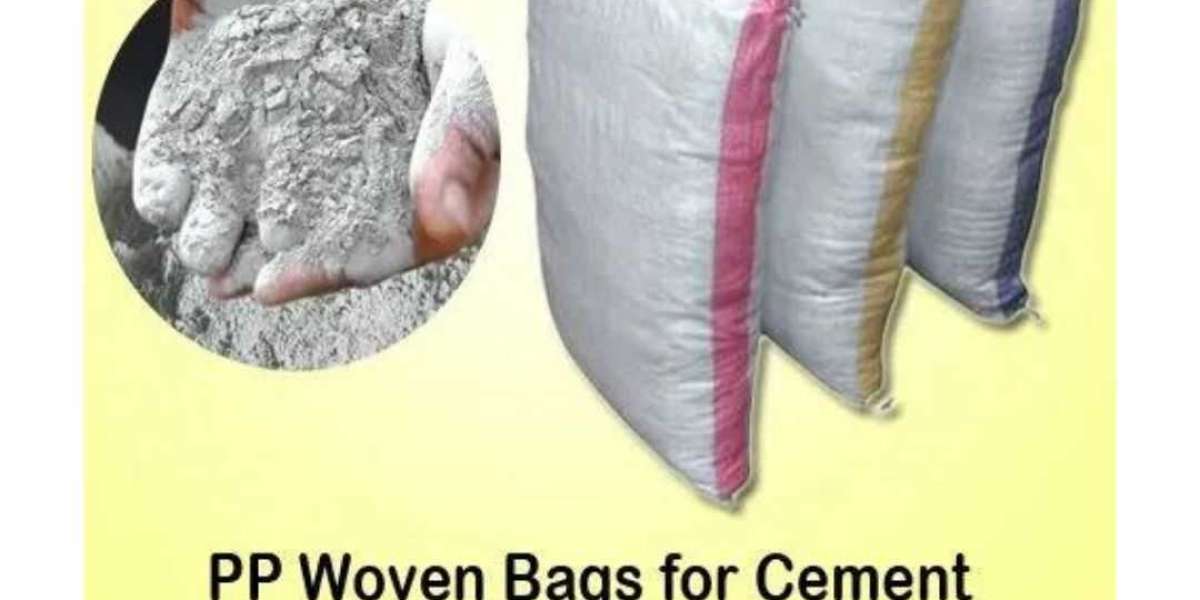PP woven bags, also known as polypropylene woven bags, have gained immense popularity due to their durability, versatility, and eco-friendliness. These bags are widely used in various industries, including agriculture, food packaging, and construction. In this article, we will delve into the manufacturing process of PP woven bags, explore their applications, and highlight the key players in the industry.
The Manufacturing Process of PP Woven Bags
Step 1: Raw Material Procurement
The manufacturing of Woven sacks bags begins with the procurement of raw materials. Polypropylene (PP) granules are the primary ingredient used in the production process. These granules are sourced from reputable suppliers to ensure high-quality output. Manufacturers often prefer using virgin polypropylene to achieve optimal strength and durability in their products.
Step 2: Extrusion
Once the raw materials are ready, they undergo an extrusion process. In this stage, the PP granules are heated at temperatures ranging from 190°C to 250°C until they melt. The molten polypropylene is then forced through a die to form flat tapes. This process is crucial as it determines the thickness and quality of the tapes that will be woven into sacks12.
Step 3: Weaving
After extrusion, the flat tapes are woven together using advanced circular looms. This weaving process is similar to traditional textile weaving but adapted for polypropylene materials. The interlacing of the tapes creates a strong fabric that can withstand heavy loads and rough handling. The woven fabric is then cut into specific dimensions based on customer requirements34.
Step 4: Finishing and Stitching
The final stage involves finishing and stitching the woven fabric into bags. The cut pieces are printed with necessary information such as handling instructions, product details, and branding elements. After printing, the pieces are stitched together to form sacks. Quality control checks are implemented at each step to ensure that the final product meets industry standards5.
Applications of PP Woven Bags
PP woven bags serve a multitude of purposes across various sectors:
- Agriculture: Widely used for packaging fertilizers, seeds, and grains due to their strength and resistance to moisture.
- Food Packaging: Ideal for storing food products like rice and flour as they allow for breathability while protecting contents from pests.
- Construction: Used for carrying construction materials like sand and cement because of their durability.
- Retail: Increasingly popular in retail environments as reusable shopping bags due to their eco-friendly nature.
Key Players in the Industry
The market for PP woven bags is populated by numerous manufacturers who specialize in producing high-quality products. Some notable PP woven bag manufacturers include:
- Manish Flexipack Pvt. Ltd.: Known for its comprehensive manufacturing process that emphasizes quality control at every stage.
- Ganpati Plastfab: Offers a wide range of woven sacks with a focus on innovative production techniques.
- Palmetto Industries: Specializes in producing customized Woven sack bags tailored to meet specific customer needs.
These manufacturers play a significant role in meeting the increasing demand for eco-friendly packaging solutions.
Advantages of Using PP Woven Bags
The benefits of using PP woven bags are numerous:
- Durability: They can withstand heavy loads without tearing or breaking.
- Water Resistance: Their construction allows them to repel moisture, making them suitable for various applications.
- Reusability: Unlike single-use plastic bags, PP woven bags can be reused multiple times, contributing to environmental sustainability.
- Customization: Manufacturers can print logos and other information on these bags, making them ideal for branding purposes.
Conclusion
PP woven bags represent a significant advancement in packaging technology. Their manufacturing process combines modern techniques with high-quality materials to produce versatile products suitable for various industries. As businesses continue to seek sustainable packaging solutions, the demand for these bags is likely to grow.
FAQs
What are PP woven bags made from?
PP woven bags are primarily made from polypropylene granules, which are extruded into flat tapes and then woven together to form a durable fabric.
How are PP woven sack bags different from traditional plastic bags?
Unlike traditional plastic bags that are often single-use and less durable, PP woven sack bags are designed for multiple uses and offer greater strength and resistance to environmental factors.
Can PP woven bags be recycled?
Yes, PP woven bags can be recycled. Many manufacturers encourage recycling initiatives as part of their commitment to environmental sustainability.








